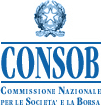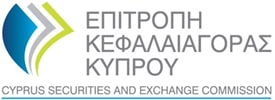European Financial Regulators – Who they are, what do they do and how can they assist you?
In this article we will look at some of the larger European Financial Regulators, focusing on Europe wide bodies and also those in the UK, France, Germany, Italy, Spain and Cyprus given the numerous Forex Brokers based here.
Why Financial Regulation is required.
The financial sector plays a critical role for nearly everyone in the modern global economy and in turn in Europe. Without the financial sector, modern economies would be unable to function. Generally, most Financial Regulators aim to help financial markets work well for large and small businesses, for individuals, and for the overall economy.
Meet the regulators
European Supervisory Authorities
The European Securities and Markets Authority in Paris (ESMA), the London based European Banking Authority (EBA) and in Frankfurt the European Insurance and Occupational Pensions Authority (EIOPA) make up the European Supervisory Authorities (ESAs).
At the European Union level they are responsible for financial regulation of financial institutions and firm-level oversight.
UK – The Financial Conduct Authority (FCA)

The Financial Conduct Authority (FCA) is the UK regulator for conduct for over 56 thousand financial services companies and also of the financial markets in the UK. Their strategic objective is to make sure that financial markets function soundly.
Their operational objectives are to promote competition, protect consumers and protect financial markets. The FCA is entirely funded by the firms that they regulate and although an independent body, they are accountable to the UK Treasury and to the UK Parliament.
France – The Autorité des Marchés Financiers (AMF)

France’s financial markets, participants and products are regulated by The Autorité des Marchés Financiers (AMF) established in 2003 by France’s legislature. The AMF is an independent public body and aims to ensure that investors receive material information, to maintain orderly financial markets and to safeguard investments in financial products.
The AMF has responsibilities to:
- Monitor savings products and participants within its supervision
- Authorise participants
- Approve disclosures involving corporate finance dealings
- Authorises collective investment products
- Inform investors and offers a mediation service
- Conduct inspections and investigations
Germany – Federal Financial Supervisory Authority (BaFin)

Germany’s Bundesanstalt für Finanzdienstleistungsaufsicht (BaFin) main objective is to safeguard the functioning, integrity and the stability of the German financial system. As of the end of 2014, they supervise 676 financial services institutions, 1,780 banks, 31 pension funds and 573 insurance undertakings. In addition, about 6,000 domestic investment funds and around 260 asset management companies.
BaFin aims to prevent unlawful financial business as part of investor protection. It helps safeguard the capacity of banks, insurance companies and financial services institutions to fulfil their payment responsibilities and requirements. Finally, BaFin applies professional conduct standards through market supervision, which maintain investors’ trust in financial markets.
Italy – Commissione Nazionale per le Società e la Borsa (CONSOB)

CONSOB is The Commissione Nazionale per le Società e la Borsa and is the Italian public authority accountable for regulating the Italian financial markets. It conducts investigations into possible breaches of market manipulation and insider trading laws.
CONSOB looks to ensure:
- transparency and accurate conduct by financial market members
- compliance with regulations by auditors on the Special Register
- admission of accurate and complete information to the public by listed companies
- accuracy of the facts to the investing public in prospectuses related to offerings of securities
Spain – Comisión Nacional del Mercado de Valores (CNMV)

The Comisión Nacional del Mercado de Valores (CNMV) supervises and checks the Spanish Stock Markets and all the activities of the participants in these markets. It aims to protect investors by ensuring transparency of Spanish markets and correct price formation in them.
The primary beneficiaries are Spanish investors, whom the CNMV aims to pledge suitable protection. The CNMV looks to improve the quality of market information disclosure and to identify and trail unlawful actions by intermediaries who are unregistered.
Cyprus – The Cyprus Securities and Exchange Commission (CySEC)

A focus on Cyprus, given the numerous Forex Brokers based here. The Cyprus Securities and Exchange Commission (CySEC) is an independent public authority. It is responsible for the regulation of the investment services markets in the Republic of Cyprus and for transactions in transferable securities.
Its mission is to provide supervision of the securities markets to ensure investor protection and their healthy development. It aims to promote the Cyprus securities market as one of the most reliable, attractive and safest investment destinations.
Its responsibilities are:
- To regulate the Cyprus Stock Exchange and other organised markets in the Republic of Cyprus and all transactions in these markets.
- To regulate and supervise agencies under its supervision to ensure compliance with the laws governing their operation.
- To inspect applications and grant licenses to bodies under its supervision and to suspend/ revoke these licenses.
- To impose administrative and disciplinary sanctions provided by law.
- To require cessation of practices which are contrary to securities market laws.
- To exchange information and data with public Authorities in the Republic of Cyprus, other foreign supervisory Authorities and organisations.
Who Regulates who?
Licenses are issued by government established institutions, which regulate financial service markets and providers. Many Forex brokers have licenses in the country in which they are based. Furthermore, many brokers also register with other regulatory bodies in countries in which they operate. A Forex broker which is registered in multiple countries will generally have a larger and wider client base. In addition, the more regulatory bodies with which a broker is registered would be an indication of a more likely reputable company.
Regulators in the News
Back on 24th September 2015, the Cyprus Securities and Exchange Commissions (CySEC) stated it had suspended the license for Falcon Brokers Ltd. This was owing to worries that Falcon Brokers Ltd may have violated the Investment Services and Activities and Regulated Markets Law of 2007. Specifically, Section 18(2)i, which pertains to organizational requirements of a Cyprus Investment Firm. This would appear to indicate that Falcon Brokers Ltd either used client funds for their own account, or did not make satisfactory arrangements to protect the ownership rights of clients.
These are just a couple of examples of how Financial Market Regulators directly intervene, to attempt to protect the individual financial market investor and trader.
How can the Financial Regulators help you as a FX Trader?
- First of all, make sure that the Forex Broker that you are using and depositing your funds with is regulated.
- If you have an issue with your Forex Broker, contact their support team. You may be able to resolve the issue to your satisfaction with them.
- If not, keep copies of all correspondence that you have with your Forex Broker, particularly regarding the issue.
- Contact the relevant Financial Regulator that oversees the Forex Broker or the markets that you are trading.
- They should be able to guide you in whether you have a case to answer against the Forex Broker and also assist you with any complaint.
In summary
Regulation must been viewed as a positive for the Forex trader. However, just because a Forex broker is regulated, this does not offer a 100% protection for the individual trader. Alongside the regulation, there are many other factors to consider when choosing a broker. Forex traders should do their own research and due diligence, to check the financial stability of the broker and also whether the broker is seen as reputable.